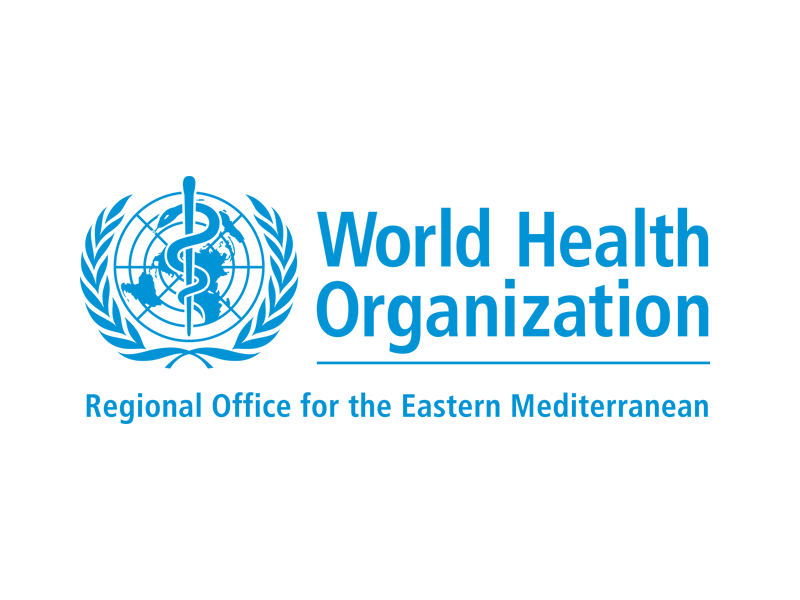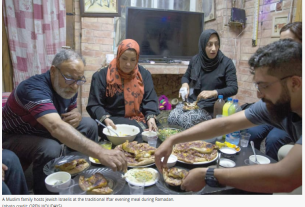7 April 2024, Beirut, Lebanon – WHO Regional Director for the Eastern Mediterranean Dr Hanan Balkhy concluded a 2-day visit to Beirut, Lebanon, last week at a time when hostilities are escalating on Lebanon’s southern border with Israel.
The visit that took place on 2 and 3 April represented the third country visit on Dr Balkhy’s official tour of the WHO Eastern Mediterranean Region since taking office in February 2024.
“Lebanon’s health system faces multiple challenges, from hosting 1.5 million Syrian refugees to hostilities in the south targeting health workers, facilities and ambulances,” said Dr Balkhy. “The Ministry of Public Health and partners need significant support and sustainable financing. It will be critical to assist them to maintain positive health outcomes as they pursue health reforms.”
Other challenges that face the health system include critical shortages in the health workforce, including medical doctors and nurses, and in medicines, medical equipment and other essential health supplies. We need to ensure that everyone living in the country is having access to the basic health services they need, when and where they need them.
With the escalation of tensions at the southern border, WHO was quick to initiate a readiness and preparedness plan in collaboration with the Ministry of Public Health, partners and donors. One of the main components of the readiness plan is preparing the referral hospitals through training of trainers for health workers on clinical trauma care, mass casualty management, the management of psychiatric emergencies, and basic psychosocial support.
Over 3906 health workers from 125 hospitals have received advanced training on mass casualty management, trauma care and mental health over the past 6 months. Critical trauma kits and other essential supplies were already pre-positioned in hospitals in southern Lebanon, while emphasis has been given to the continuity of essential services for displaced people.
Accompanied by WHO Representative to Lebanon Dr Abdinasir Abubakar, the Regional Director met with Prime Minister Mr Najib Mikati and Minister of Public Health Dr Firass Abiad. They discussed key health strategies for the country and Dr Balkhy’s 3 flagship initiatives to address equitable access and effective supply chain management, the health workforce and substance use across the Eastern Mediterranean Region. She reiterated WHO’s commitment to support Lebanon to overcome health challenges and build on its existing strengths, which will not only have a significant return on health but on the economy of Lebanon as well.
The WHO delegation met with United Nations (UN) partners and donors at Lebanon’s Public Health Emergency Operations Center, which is supported by WHO to help manage conflict trauma, enhance coordination and manage resources. The serious implications of funding cuts on health care were discussed. These are expected to affect not only the Lebanese population but also the Palestinian and Syrian refugees hosted by the country.
Dr Balkhy also met UN Deputy Special Coordinator for Lebanon Mr Imran Riza, who is also the Resident and Humanitarian Coordinator for the country, to discuss the role of the UN in supporting the government and the people of Lebanon to overcome challenges, and more importantly, to strengthen and maintain institutional capacity.
On the second day of the mission, Dr Abiad and Dr Balkhy visited Lebanon’s central drug warehouse to view the medication procured with the support of WHO, and the trauma kits sent from WHO’s logistics hub in Dubai, United Arab Emirates, ahead of their distribution to referral hospitals across Lebanon. WHO’s logistics hub in Dubai responds to health emergencies arising from the COVID-19 pandemic and other infectious disease outbreaks, conflict and humanitarian crises, natural and technological disasters, and climate change-related events. Since 2018, WHO’s logistics hub has delivered over 2000 shipments consisting of 12 000 metric tons, valued at over US$ 185 million to 141 countries across all 6 WHO geographic regions.
“WHO was able to provide immediate support in rebuilding the warehouse following the Beirut port explosion in 2020,” Dr Abiad said. The capacity of the new warehouse is today eight times what it was before the blast. The new warehouse is fitted with an updated automated Logistic Management System that has taken the medicine and medical supply management at the Ministry to a new level. It has improved transparency, eased distribution up to dispensing to the patient, and most of all provides a live up-to-date status of the medicines at the Ministry’s warehouses and medication dispensing centres. It is linked to the national medicine 2D barcode track and trace system, MediTrack.
At Karantina Governmental Hospital, the delegation was met by hospital director Dr Michel Matar, who gave a tour of the facility’s new building. Dr Abiad pointed out during the tour that WHO is an essential partner and had collaborated with the Ministry of Public Health to help develop the national health strategy that was launched in 2023.
The last leg of the mission took the delegation to Karagheusian Primary Healthcare Center, one of Beirut’s largest primary health care centres, serving more than 10 000 patients a month, with a clear vision of leaving no one behind. The Chairman of the Board of Directors, Mr Garbis Markarian, explained with utmost pride how they “ensure that there is no discrimination between our patients especially when only 20% of them are Lebanese.” Mr Markarian has been the chairman of the board since 2012 and board member since 1982.
Dr Balkhy spent time with children, their parents, and others attending the clinic and saw the wide range of services provided at the facility where WHO is working with the Ministry of Public Health to build health worker capacities and make medicines and vaccines available to patients.
Dr Balkhy concluded her mission by promising to “make sure that Lebanon’s views are represented at the highest forums at regional and global levels and that the country has the resources to address its health needs.”
Media contacts:
Hala Habib, Communications Officer, WHO Country Office in Lebanon
Email:
This e-mail address is being protected from spambots. You need JavaScript enabled to view it
WHO Regional Office media team
Email:
This e-mail address is being protected from spambots. You need JavaScript enabled to view it



